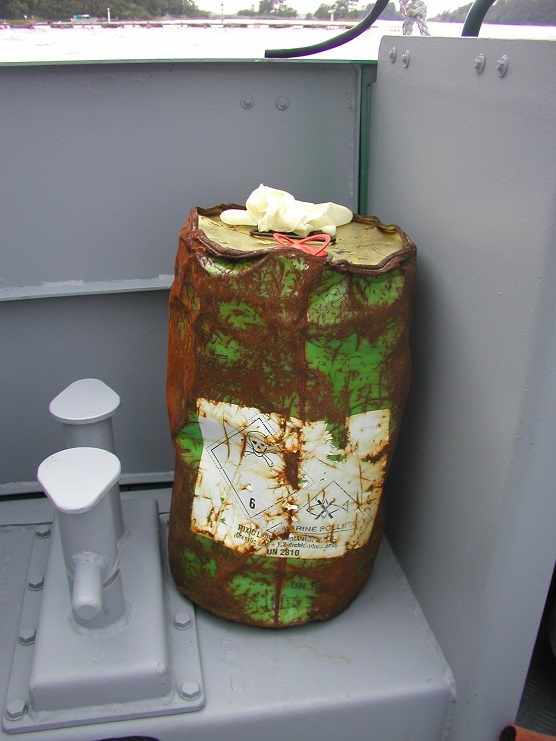Current
New guidelines published
Monitoring and assessment of environmental impacts of chemical spills in the Baltic Sea
Oil Spill Exercise in Ice Conditions and Arctic Oil Spill Conference

© Photo: SYKE
Chemicals can behave in a number of ways once they are spilled into the sea. Understanding their behaviour is important; first of all, to recognize the implications chemicals have on human health and the environment. Hazards to the environment can vary a lot depending on the chemical in question and impact can be acute or long-lasting. Cargo outflow may lead to mortality of certain species, contamination of coastline or disturbances to local amenities, etc. Most shipping accidents have local impact on the environment, but accidents may have also wider effects. This can happen via affecting components of the ecosystem that are significant for the whole region. For example, habitats, spawning grounds, or wintering areas are this kind of key components. Furthermore, the environmental effects of a spill depend greatly on the time and place of the spill and also other factors. This means that different spills of the same size can also have different effects on the environment.
The occurrence of accidental chemical spills at sea requires an effective response that must include well-executed monitoring guidelines to assess the environmental contamination and damage of the affected marine ecosystems. Post-spill monitoring is necessary when an accident is expected to have a significant environmental impact. The environmental impact assessment is crucial for the decision-making process over the selection and implementation of a prominent response plans. The environmental monitoring can be used to demonstrate ecological damage and economic losses in the context of spill-related claims and compensations.
The main purpose of the EKOMON project is to make guidance for post-spill environmental monitoring, which can be widely utilized in the Baltic Sea and also other cold waters like the Arctic seas.
The EKOMON final seminar
Ecological Consequences of Marine Chemical Spills - EKOMON SEMINAR
7-8 MARCH, 2018 Oulu, Finland.
The EKOMON final seminar will be held parallel with International Arctic Oil Spill Conference (Mospa 2018). The final seminar consist of separate sessions in that larger International Conference held in 7-8th March 2018 in Oulu.
EKOMON seminar handles questions related on the monitoring of ecological impacts of accidental marine HNS spills.
More information about venue etc. can be found: http://www.syke.fi/projects/mospa2018
Additional information:
Jani Häkkinen, Finnish Environment Institute, tel. +358 295 251 793, firstname.surname@ymparisto.fi